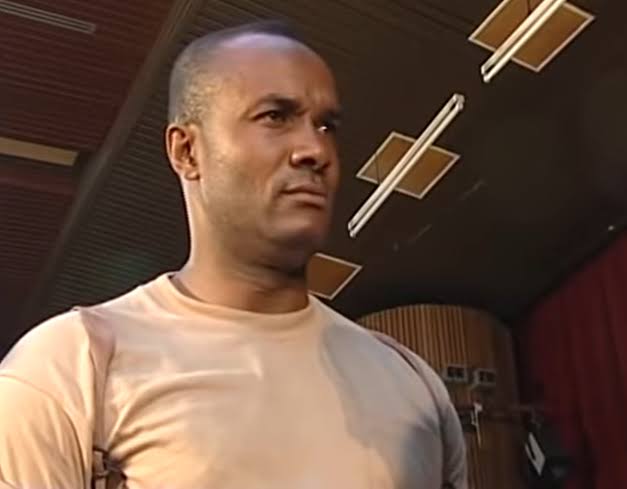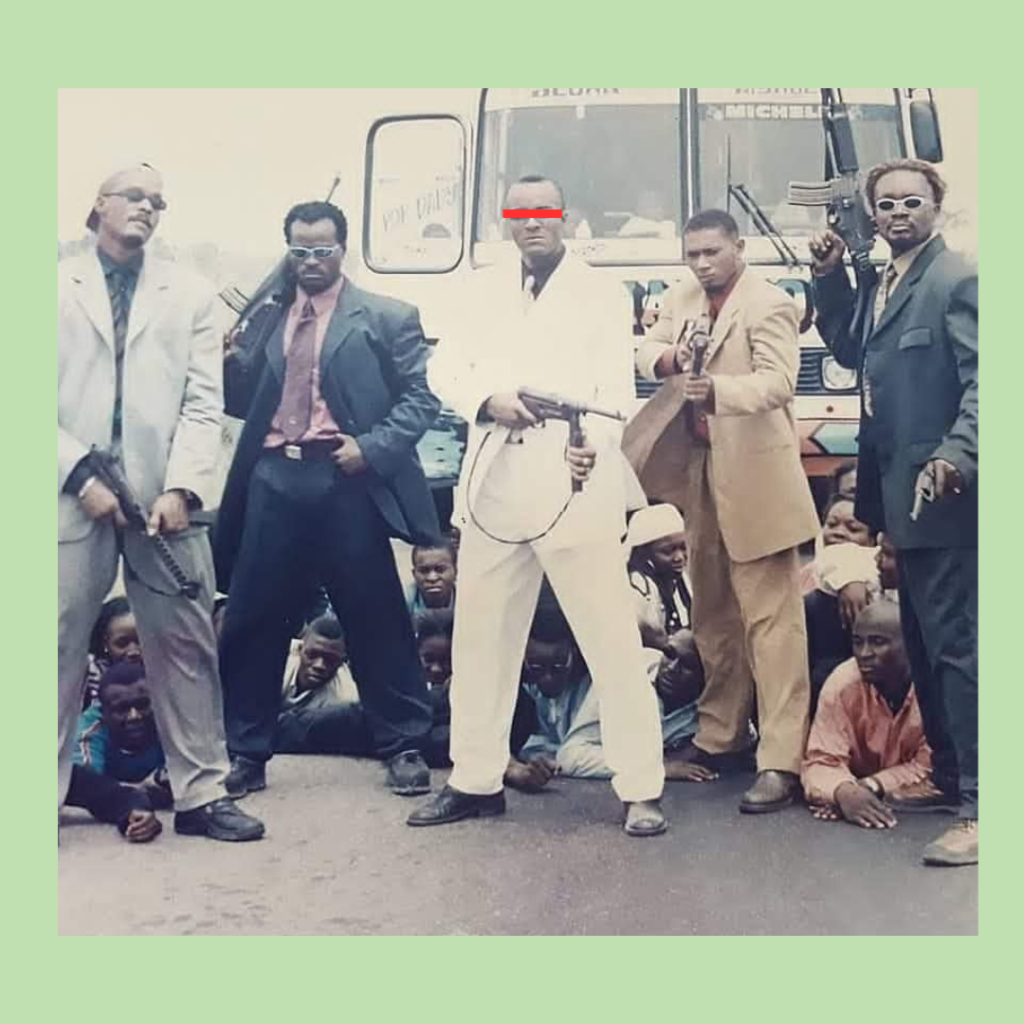Although death is final, the catalogue of films in Saint Obi’s filmography should be sufficient in immortalising him and endearing him to the next generations of Nollywood film lovers…
By Seyi Lasisi
My childhood memories weren’t replete with scenes and role-playing of popular Old Nollywood films. If my memory could serve me well, I saw very few films. Watching films was, at that point, seen as an idle activity with no immediate reward. The films I saw were mostly watched in uncomfortable postures, primary of which was through peeping from a neighbour’s window. By taking a glimpse, I gradually imprinted film titles in my mind. Life occasionally shines its generosity, and I would watch, in the comfort of my room, some Nollywood titles I can’t now recall. However, there is this factor, too: I am Yoruba, and so the endless list of films that played had characters that spoke the language of my birth. There were only few with English language dialogues; hence, my inability to recall fond or indeed any childhood memory of how Saint Obi enlivened my childhood. It will be false to form a tinge of familiarity with his personality. But, the constant attention and collective sense of loss that trails his demise made me curious as to whom the Saint we called Obi was.
Movie Title: State of Emergency.
The movie that year was a banger and a blockbuster.
Late JT Tom West, Saint Obi, and Bruno Iwuoha are legends forever 😭😭
May their souls rest in perfect peace. pic.twitter.com/I62zmb7PvI
— Stranger (@AdamsClem1) May 16, 2023
Obinna “Saint Obi” Nwafor was born on November 16, 1965, in the Southern Nigerian city of Port Harcourt, Rivers State. He was known as the Nigerian James Bond, a moniker he earned for his prolific acting in action-themed roles. Saint Obi’s fame as an actor extended beyond the confines of his immediate childhood community to earn him admirers from various regions of Nigeria. His ascent as an actor was signalled in the Chico Ejiro-directed Candle Light. The 1998 feature film afforded Saint Obi, along with other leads, a spot in the mind of the Nollywood audience.
Seen now, most of Saint Obi’s physically-demanding roles might not prompt admiration as it did in the 90’s. But, those roles of his were pioneering effort in an industry still building its portfolio of action films. His moves and stunts quickly earned him the moniker of “Nigerian James Bond.” Saint Obi is often recalled as this for his roles in films like Wanted Alive (2001), Festival of Fire (2002) and Take Me to Maama (2002). Although Saint Obi is often seen as Nollywood’s prolific action star, he did lend his acting skills to other roles. In the Zeb Ejiro-directed Sakobi, the Snake Girl (2001), he was recruited by Ejiro to play the role of a lover boy and ritualist, a departure from his usual roles.
Saint Obi’s acting was often replete with a calm and lush performance that endeared him to Nigerian audiences. In Sensational Spy, where he plays the role of police officer Smith, protecting the life of a witness was his earned police duty. Despite always being on the run, with a paucity of assistance from his fellow officers, Smith’s facial countenance bears no closeness with frustration. It is often calm and gentle, reassuring the pursued witness that all is well. This identical ease which marks his performance is noticeable in Oracle, and the popular State of Emergency (2004). Saint Obi’s role in the Andy Amenechi-directed Oracle, where he leads the stealing of Ogbakiri, a village deity, required him to wear the countenance of desperation. He however opted for his signature calm posture and appearance. In State of Emergency, on identifying, through a visual communication cue, that Omega 12 Intelligence Mission, members of a disbanded military operation, is in charge of the prolific killing of children of some politicians, the character Saint Obi plays hastens to report the situation to his superior in the FBI. Although his report is met with discouraging silence from his superior, he decides not to protest. Saint Obi’s performance is always detailed and composed. He brings to each performance a measure of familiarity that always wins audiences’ flickering attention.

Trailing the announcement of Saint Obi’s passage was an atmosphere of mourning, both on social media and away from it. Aside from the endless virtual posts that reiterate Saint Obi’s importance, there is also the occasional, though short-lived conversations in buses I have been privileged to hear. What these social media posts and verbal conversations bring to the fore, away from the finality of death, is Saint Obi’s ingenuity put in the often similar roles he plays.
The gradual descent of Old Nollywood and the ascent of New Nollywood motivated expectations. One of those expectations, for Nigerians whose childhood memories were anchored on watching Old Nollywood titles, is the possibility of a cross-generational conversation, one that would be headed by filmmakers from both distinct generations. Nollywood is witnessing that epoch with Charles Okpaleke’s unabated preference for rebranding Old Nollywood titles. These remakes, which were introduced by Living in Bondage: Breaking Free in 2020, have reintroduced notable Nollywood legends, including Kanayo O. Kanayo, Nkem Owoh, and Pete Edochie to a different generation of Nigerians. These projects subtly requested for Saint Obi’s comeback performance in New Nollywood after a long period of silence from the actor.
Saint Obi however had a different intention: to sing. Contrary to our expectations, the actor pined for the sort of acclaim and attention music could afford him. This led to the creation of Agwhyte Music Label, a platform that aims to give talented Nigerian musicians a shot at success. Saint Obi’s detour into music couldn’t contend with his acting career. The filmmaker-turned-musician’s musical journey, though unimpressive, signalled Obi’s interest in experimentation. As the lyrics in one of his songs say, “you may say I am a dreamer.”

Saint Obi’s death on May 7, 2023, at age 57, reportedly after a long private battle with illness, is a gut punch for Nollywood enthusiasts whose formative years were made memorable by him. To quote William Shakespeare’s concluding couplet in Shall I Compare Thee to a Summer Day? — the lines that hold the weight of Shakespeare’s message about the immortality of art, beauty, summer, and in this context Saint Obi: “So long as men can breathe, or eyes can see/ So long lives this, and this gives life to thee.” Although death is final, the catalogue of films in Saint Obi’s filmography should be sufficient in immortalising him and endearing him to the next generations of Nollywood film lovers.
Seyi Lasisi is a Nigerian student with an obsessive interest in Nigerian and African films as an art form. His film criticism aspires to engage the subtle and obvious politics, sentiments, and opinions of the filmmaker to see how it aligns with reality. He tweets @SeyiVortex. Email: seyi.lasisi@afrocritik.com.




